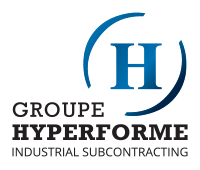Risk management and quality control in industrial subcontracting
Industrial subcontracting offers manufacturing firms the ability to better focus on their core business and take advantage of the expertise of different service providers in order to optimize their performance. However, like any other form of collaboration, it involves bringing together different entities, generally both in terms of their structure and their processes. To ensure a healthy and beneficial collaboration between the ordering client and their service providers, it’s therefore important to be aware of the risks associated with the quality of the subcontracted work, as well as those related to the legal, safety, social, and transportation aspects, among others. In practice, this means, for the ordering client, a clear and precise definition of their quality control policy with regard to subcontracting – a particularly important aspect in the manufacturing industry. This must imperatively take the following elements into account.
A clear definition of quality standards before selection
A good risk management strategy should include practical provisions downstream, even before choosing the provider. At this stage, it is indeed essential for the ordering client to establish clear and specific performance indicators that will be taken into account during the selection process for the right subcontractor(s). These indicators should include – in particular – quality, reliability, respect for deadlines, and customer satisfaction level.
Contract quality control
After selecting the subcontractor, in consideration of the criteria mentioned above, comes a major phase: establishing the bilateral contract. Since the goal is to guarantee the security of both parties, this should be established so as to avoid two major pitfalls: the ultra-regulated contract, which inhibits the practical performance of the service, and the overly broad contract, which lacks a strong enough framework. It should therefore define – as precisely as possible – the tasks to be carried out and their performance terms, as well as the control procedures and sanctions (and possible penalties), not to mention the contract renewal conditions. To this end, it should consist of the three main sections that follow:
- Technical specifications;
- Financial and legal terms;
- The organizational terms for the operational relations between the two parties.
It’s particularly in this last point that the role of quality control in subcontracting should clearly be asserted while defining, among others, the control, coordination, and activity planning procedures of the subcontractor. In close collaboration with the legal department, the department responsible for quality control should ensure the establishment of very specific clauses that are adapted to the legal framework in effect.
Audit and control to optimize production and quality
During the execution of the contract, quality control in subcontracting involves the continuous evaluation of the service provider in order to ensure compliance with the quality and operational standards established as advised above. The goal is to make sure that the service provider actually provides the agreed-upon product quality, and that they respect all the provisions over the course of their operations. In compliance with the rules established in the contract, it’s also a matter of being able to ensure that adequate steps are taken in case of malfunction or defect on the part of the provider.
But one of the major responsibilities of the department in charge of subcontracting quality control is to be able to determine – on the basis of the evaluations carried out – the necessary steps to improve the subcontractor’s performance. Since productivity and performance are major challenges in this type of collaboration, being able to correct and improve processes while optimizing costs should indeed remain an obligation of the ordering client.
A subcontracting business combination, for simpler risk management
Within the context of a subcontracting need over the medium-to-long term, relying on a business combination specializing in industrial subcontracting presents attractive benefits, as mentioned in the previous article. With regard to quality control in subcontracting, this arrangement allows you to standardize procedures and rules, and thereby benefit from a service quality that’s consistent overall. Furthermore, only having to rely on a single contact person facilitates communication between the ordering client and the various service providers.
Based in Québec and serving the entire world, Groupe Hyperforme offers you suitable solutions for optimal service quality control within the context of your various industrial subcontracting needs. We’re your single contact for all your needs relating to the processing of manufacturing materials (rubber, wood, metal, or plastics), surface treatment, industrial maintenance, electromechanics, and robotics.







